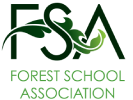
Horticulture
INTENT |
|---|
In the Horticulture department it is our intention to provide all children, regardless of their special needs, with a broad and balanced horticulture curriculum. We aim to promote positive attitudes to horticulture as an interesting and enjoyable subject, and also to develop awareness of how horticulture is a life skill that can impact on everyday life as a method of relaxation and aiding mental health and well-being. We also inform pupils about how horticulture could provide them with skills for their own hobbies and interests or possible employment opportunities in the future. Our intention is for pupils to enjoy learning, make progress and achieve at an appropriate level. |
IMPLEMENTATION |
The Horticulture curriculum is organised around the “Open Awards level 1 Certificate s, units of study. Pupils arrive on the KS4 horticulture course with a variety of prior horticultural experiences, often none. During the first half term they are assessed to determine their level of skill against a set of “can do” statements using Classroom Monitor. This becomes the baseline assessment on a horticultural skills assessment portfolio which is updated regularly throughout the course and used to monitor pupil progress. Pupils will experience a practical, multi-sensory approach to horticulture due to our belief that pupils learn most effectively by doing the activity for themselves and by touching, smelling and tasting where appropriate. We aim to develop the skills of independence, planning, planting, cultivating, basic floristry, health and safety, tool use and maintenance, pruning and the importance of interaction between plants and animals, especially pollinators. Pupils are encouraged to use and enhance their literacy and numeracy skills in a horticultural context. The curriculum provides opportunities for pupils to evaluate their own work, reflect on what they have learnt or done well, and make suggestions for improvement where relevant. Horticulture Dept Curriculum Statement AT Jan 2020 Pupils are encouraged to form opinions on the social, moral, spiritual and cultural aspects of horticulture and wherever possible horticulture course content is linked to British Values. |
IMPACT |
All pupils have the opportunity to gain a recognised qualification in garden horticulture. Pupils will experience a practical approach to horticulture exposing them to use of a wide range of horticultural equipment and ideas. They will have the opportunity to become confident and competent to independently choose, use and maintain such apparatus. This will help develop fine motor skills, sequencing and planning skills, fact finding skills, memory, foster time management skills and raise awareness of the need for rules, routines and procedures to keep individuals and the environment safe at all times. We believe that the skills learnt in Horticulture will help give pupils confidence to function more successfully in their community and will enable them to make better informed life, work and well-being choices in the future. |
Link | ||
Autumn | Spring | Summer |
HAT 1: Why we need plants and trees. HAT 2: What foods can we grow in the UK | HAT 3: What do insects do for our gardens. HAT 4: Growing foods. | HAT 5: Getting to know garden tools. HAT 6: Reflection of what we have learnt. |
Nexus | ||
Autumn | Spring | Summer |
HAT 1: Why we need Plants and trees HAT 2: What foods can we grow in the UK | HAT 3: What do insects do for our gardens. HAT 4: Growing micro salads. | HAT 5: Getting to know garden tools. HAT 6: Reflection of what we have learnt. |
KS2 | ||
Autumn | Spring | Summer |
HAT 1: Getting to know your plants. HAT 2: Helping plants grow. | HAT 3: Soils and mini Beasts. HAT 4: Growing foods. | HAT 5: Caring for the garden. HAT 6: Celebrating plants. |
Year 7 | ||
Autumn | Spring | Summer |
HAT 1: Garden safety and tools. HAT 2: Planting and growing cycles. | HAT 3: Wildlife in the garden. HAT 4: Healthy foods from the garden. | HAT 5: Maintenance skills. HAT 6: Showcase Project. |
Year 8 | ||
Autumn | Spring | Summer |
HAT 1: Review and refresh on work from previous term. HAT 2: Garden design. | HAT 3: Propagation skills. HAT 4: Linking to the wilder world. | HAT 5: Running a garden. HAT 6: Mini garden open day. |
Year 9 | ||
Autumn | Spring | Summer |
HAT 1: Planting and planning. HAT 2: Growing in different ways. | HAT 3: Garden enterprise. HAT 4: Jobs and community. | HAT 5: Independent projects. HAT 6: Sharing and celebration. |
Year 10 | ||
Autumn | Spring | Summer |
HAT 1: Maintain hand tools. HAT 2: Using hand tools to clear areas. | HAT 3: Identify weeds. HAT 4: Prepare soil and add organic mulch. | HAT 5: Identify weeds. HAT 6: Harvest and preparing food for storage. |
Year 11 | ||
Autumn | Spring | Summer |
HAT 1: Plant container grown plants HAT 2: Control weeds in a planted area | HAT 3: Water a bed or area of plants in containers HAT 4: Plant protection. | HAT 5: Care for a planted area. HAT 6: Prepare planting area for end of term. |










